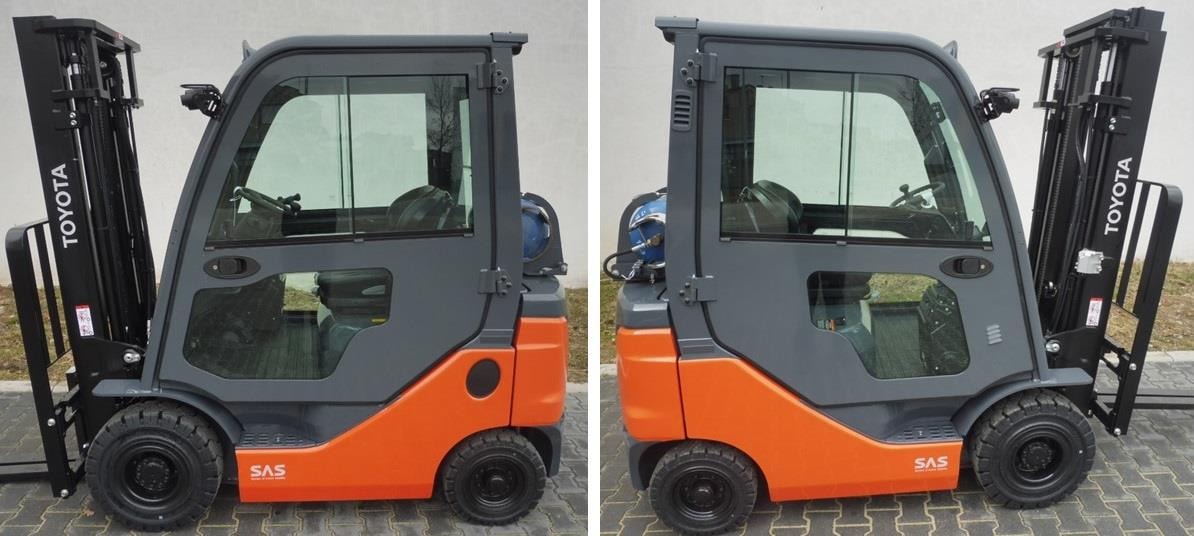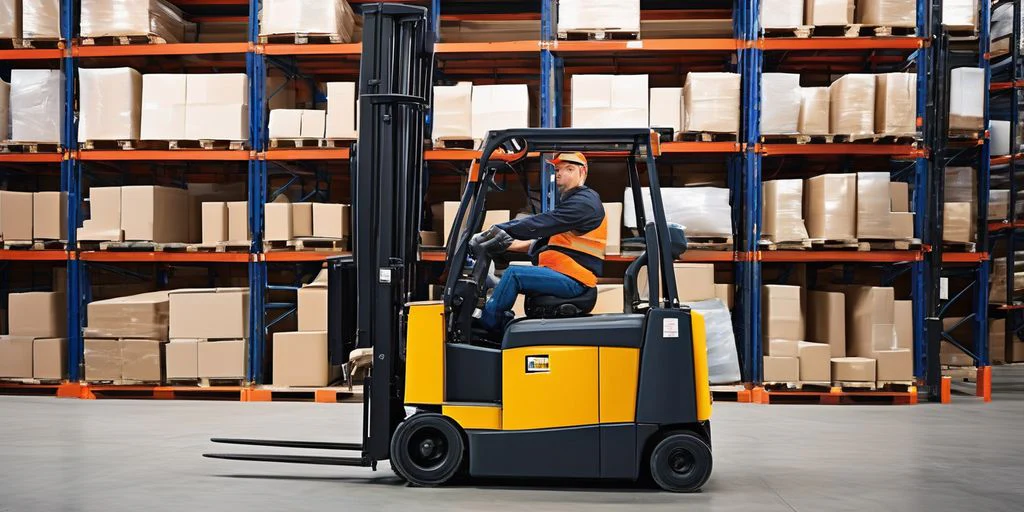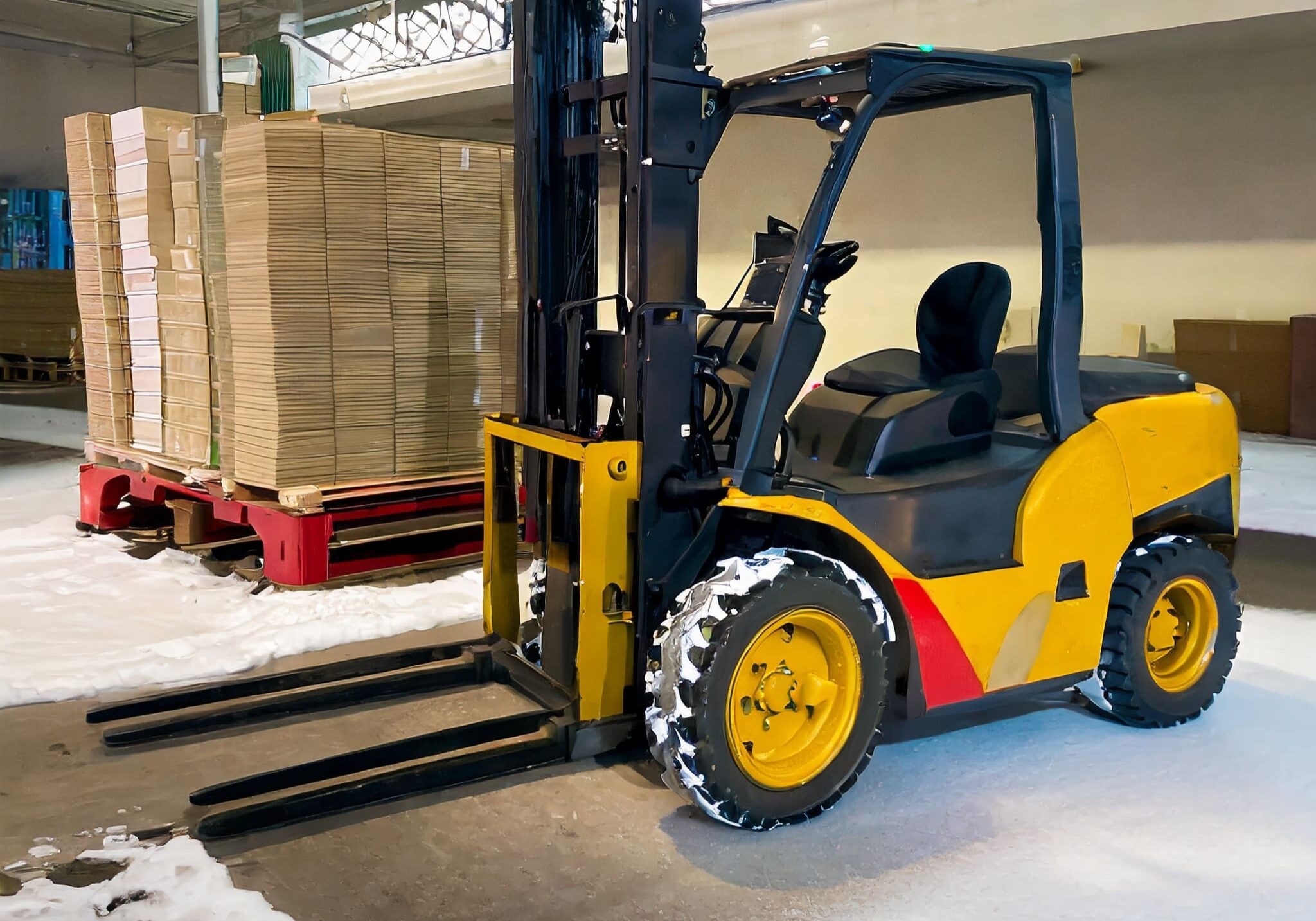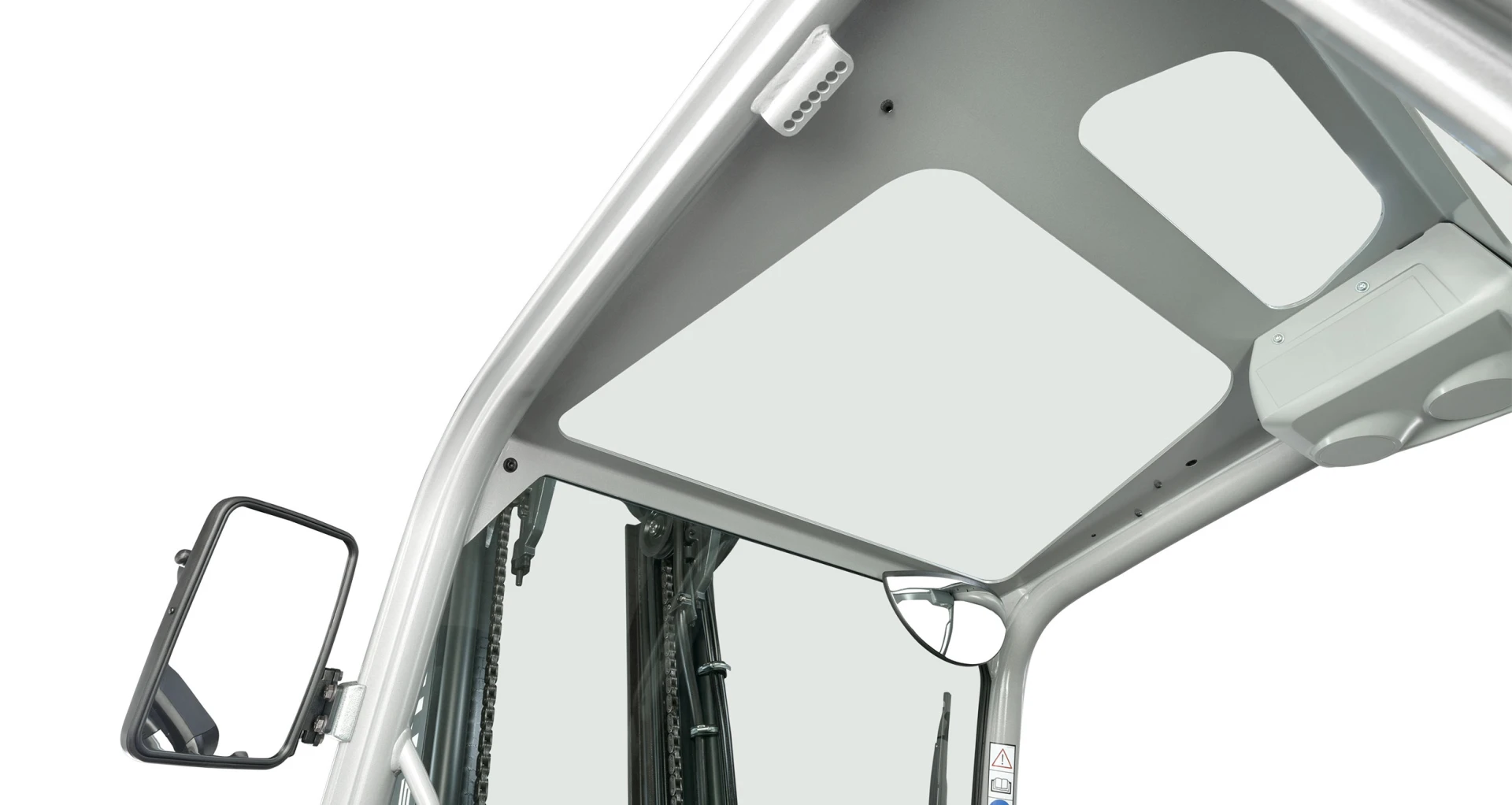Forklifts play an essential role in warehouses, factories, and construction sites, but their efficiency heavily depends on forklift cabin repairs that ensure both operator comfort and safety. The forklift cabin is where the operator spends long hours, and maintaining this space is critical for reducing fatigue, enhancing productivity, and ensuring smooth forklift operation. Issues like poor visibility, uncomfortable seating, or malfunctioning controls can lead to safety risks, accidents, and reduced operator efficiency.

Regular maintenance is key to preventing unexpected breakdowns and costly repairs, while also ensuring a safe working environment. Proactive care of forklift cabins, including inspections of seat belts, mirrors, and hydraulic systems, ensures the forklift remains in optimal condition for daily operations.
At Upright Forklift Repair, we ensure that your forklifts’ cabin repairs address these key areas, enhancing safety, comfort, and overall performance for your workforce, helping you maintain a productive and safe operation. Our expert services help keep your forklifts operating smoothly, reducing downtime and improving overall workplace safety.
Why Forklift Cabin Comfort Matters for Operators?
A comfortable forklift cabin significantly impacts the well-being and efficiency of operators, who often work long hours handling heavy loads. The right cabin setup reduces fatigue, minimizes the risk of injury, and boosts productivity. Cabin Cool Systems are particularly vital in hot environments like Houston, offering much-needed relief from extreme temperatures and allowing operators to focus on the task at hand.

Ergonomically designed seating and clear visibility are also crucial for safe forklift operations. Adjustable seats that provide proper back support, along with correctly positioned mirrors, help reduce strain and ensure operators can navigate safely. Forklift operators perform better and make fewer errors when their work environment is optimized for comfort.
The Connection Between Cabin Safety and Forklift Performance
A well-maintained forklift cabin is essential for both operator safety and optimal forklift performance. Ensuring that key safety features, such as properly functioning seat belts and clear visibility, are in place significantly reduces the risk of accidents. Operators working in a safe cabin environment can focus on handling heavy loads with precision, minimizing errors that could lead to accidents or damage to the equipment.

Routine forklift cabin repairs are crucial for maintaining both safety and operational functionality. Neglecting safety measures like regular safety checks can put not only the operators but also other workers at risk. Forklift operations that prioritize cabin safety see fewer incidents and more consistent productivity.
Common Forklift Cabin Issues and Solutions
Forklift cabins are exposed to constant wear and tear, leading to several common issues that can impact safety and performance. Poor visibility is one major concern, especially when handling heavy loads, which can obstruct the operator’s view. Regular cleaning of mirrors and windows, along with adjusting load heights, helps maintain clear sightlines. Additionally, worn-out seats can lead to discomfort and poor posture, which may cause operator fatigue and safety risks over time.
One of the most serious issues is hydraulic system failure, which can lead to dangerous malfunctions during operation. Proactively addressing this through fluid level checks and scheduled maintenance can prevent catastrophic failures. Moreover, broken pallets can cause damage to both the forklift and the cargo, necessitating swift repairs to avoid further safety risks. These issues emphasize the importance of regular cabin repairs and adhering to safety procedures to keep forklifts functioning smoothly while minimizing repair costs.
Hydraulic System Failure: A Major Safety Concern
Hydraulic system failure is one of the most critical safety risks in forklift operation. If the hydraulic system malfunctions, it can cause loss of control over lifting mechanisms, leading to dropped loads, accidents, or damage to property and personnel. The impact of such failures on overall safety cannot be overstated, as it jeopardizes not only the operators but also those working nearby.
Preventing hydraulic system failure requires proactive maintenance practices. Regular fluid checks ensure that the system is properly lubricated and functioning at its best. Following proper maintenance procedures can prevent major breakdowns, reduce repair costs, and ensure continuous, safe operation. Establishing a regular maintenance routine with damage prevention as a focus will significantly minimize the risk of system failures, ensuring a safer working environment.
The Role of Preventive Maintenance in Forklift Cabin Safety
Proactive, preventive maintenance is key to ensuring the smooth functioning and safety of forklift cabins. Regular upkeep addresses wear and tear before they become serious safety concerns, which is especially important for components like seats, mirrors, seat belts, and hydraulic systems. Routine maintenance helps ensure that forklift operators can rely on their equipment to perform safely and efficiently.

Using aComputerized Maintenance Management System (CMMS) is an effective way to automate and streamline maintenance processes. With CMMS, businesses can create and manage detailed maintenance schedules, ensuring that each forklift undergoes timely inspections and necessary repairs. This system allows for better tracking of service history and scheduling of critical tasks, such as visual inspections and fluid level checks, enhancing overall operational efficiency.
By prioritizing preventive care, businesses avoid unexpected downtime and extend the life of their forklifts, improving both safety and productivity in the long run.
Regular Visual Inspections: Identifying Early Warning Signs
Performing routine visual inspections is crucial for maintaining safe and efficient forklift operations. Identifying early warning signs can prevent small issues from escalating into costly repairs or dangerous accidents. Common indicators include cracked mirrors, which can reduce visibility, and malfunctioning seat belts, compromising operator safety. Additionally, issues with the steering wheel can impact maneuverability, leading to potential hazards in tight spaces.
Regular safety checks should also cover other key components such as tires, lights, and hydraulics. By addressing these issues early, businesses can reduce downtime and ensure safer operations. A well-maintained forklift, with attention to small repairs, keeps both operators and surrounding workers safe from preventable accidents.
How to Ensure Forklift Operators Are Safe and Comfortable?
Ensuring the safety and comfort of forklift operators is critical to maintaining operational efficiency. Simple practices, such as proper seat belt usage, help protect operators from injury during sudden stops or accidents. Equally important is ensuring a clear line of sight by regularly adjusting mirrors and keeping loads low, which minimizes blind spots and improves overall safety.
Training operators in defensive driving techniques and proper handling of emergency situations is essential. This can include refresher courses to reinforce awareness of safety procedures and compliance with the company’s safety guide. Incorporating regular refresher training keeps safety protocols up-to-date and improves operator performance, ultimately reducing workplace accidents and promoting a safer work environment.
Proactive Maintenance: Reducing Downtime and Repair Costs
Implementing a proactive maintenance strategy is crucial for preventing unexpected equipment failure and minimizing costly repair costs. By conducting regular inspections and addressing issues before they become critical, businesses can avoid the sudden breakdowns that lead to expensive repairs and extended downtime. Preventive maintenance helps extend the lifespan of forklifts and keeps them running efficiently, reducing the need for frequent repairs.
Long-term, proactive maintenance saves on operational costs and improves overall productivity. Adhering to structured service schedules ensures that all forklifts receive the care they need to perform optimally, reducing both the likelihood of failure and the frequency of repairs. This approach results in long-term savings for businesses, as well-maintained forklifts experience fewer disruptions, ensuring smooth daily operations.
Safety Procedures and Guidelines for Forklift Operation
To minimize accidents and ensure a safe working environment, it’s essential that operators follow strict safety procedures during forklift operation. Key practices include wearing seat belts, checking that loads are properly balanced, and always maintaining a safe distance from pedestrians and other vehicles. Operators should also be aware of their surroundings and use warning signals to alert nearby workers.
Regularly testing the parking brake and other critical components helps to avoid mechanical failures that can lead to accidents. Additionally, ensuring that forklift drivers adhere to procedures like inspecting tires and ensuring proper load capacity reduces the chances of tipping or losing control. Operators must also pay attention to warning signs such as unusual noises or vibrations, which could indicate underlying issues.
Technological Tools to Improve Maintenance Management
Leveraging technology such as Computerized Maintenance Management Systems (CMMS) can significantly improve forklift maintenance management. CMMS tools allow businesses to automate maintenance schedules, ensuring timely forklift cabin repairs and regular inspections. By tracking key performance indicators (KPIs), such as service history and repair frequency, companies can better manage their forklift fleet and avoid costly breakdowns.
One of the key benefits of CMMS is its real-time monitoring capabilities. It alerts managers to abnormalities in forklift performance, allowing for quick corrective actions before issues escalate. This performance tracking enhances the overall efficiency of maintenance processes, ensuring that all forklifts are operating at peak condition while minimizing unexpected downtime.
How Cabin Cool Systems Enhance Operator Comfort?
In hot working environments like Houston, cabin cool systems play a vital role in ensuring operator comfort. Forklift operators working long shifts in extreme temperatures are more prone to fatigue, which can impact productivity and safety. By providing individual cooling within the cabin, these systems help maintain an optimal temperature, allowing operators to stay focused and comfortable throughout their shift.

Installing cabin cool systems as part of regular forklift cabin repairs is an excellent way to boost productivity and create a more ergonomic working environment. This investment in operator well-being is especially crucial in hot environments, where cooling solutions can make a significant difference in reducing heat-related stress and improving overall job performance.
Forklift Operator Training: Enhancing Awareness and Safety
Comprehensive training programs for forklift operators are essential to ensuring both safety and productivity in the workplace. Operators must be well-versed in the latest safety procedures and maintain situational awareness during operation. Regular refresher training is crucial, as it reinforces safety practices, updates knowledge, and helps operators handle equipment confidently in various scenarios, including emergency handling.
Studies show that well-trained operators significantly reduce accident rates and contribute to smoother operations. A thorough safety guide combined with hands-on experience fosters a culture of safety and boosts overall well-being on the job. Companies that prioritize continuous education see improvements in operational efficiency, reduced downtime, and fewer incidents.
Contact Upright Forklift Repair for Expert Forklift Cabin Services
Regular maintenance and proactive care are vital to keeping forklift cabins safe, comfortable, and efficient. Ensuring proper upkeep of your forklifts minimizes breakdowns, reduces repair costs, and improves overall forklift performance.
At Upright Forklift Repair, we specialize in expert forklift cabin repairs and maintenance services for businesses in Houston, TX, and Humble, TX. Whether you need routine service or emergency repairs, our team is here to ensure your forklifts remain in optimal condition.
Contact us today for all your repair, service, and spare part needs, and experience the benefits of increased productivity and performance with our reliable, local service!
